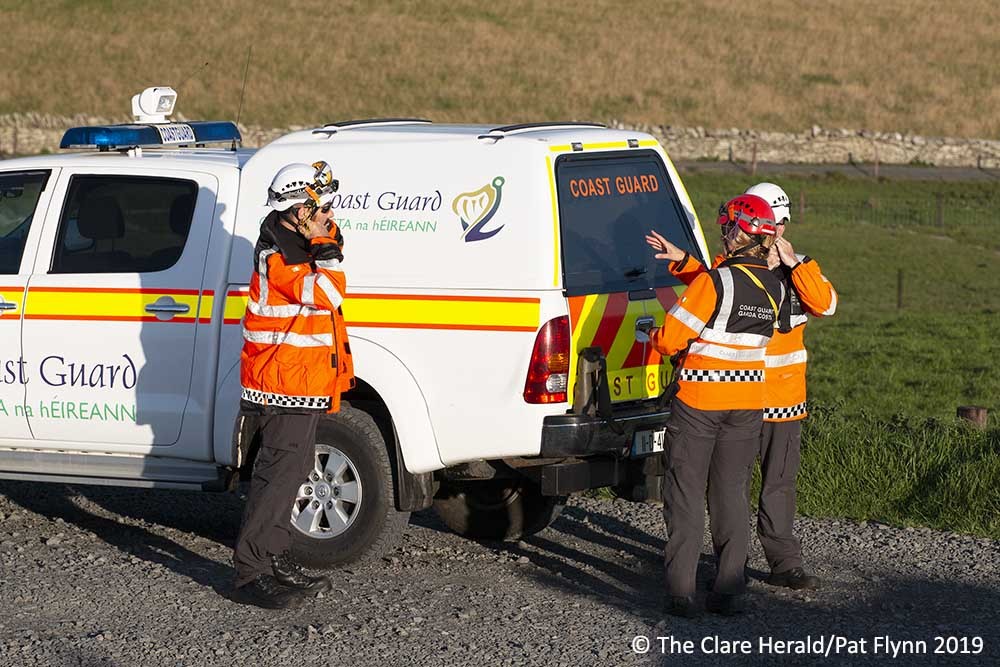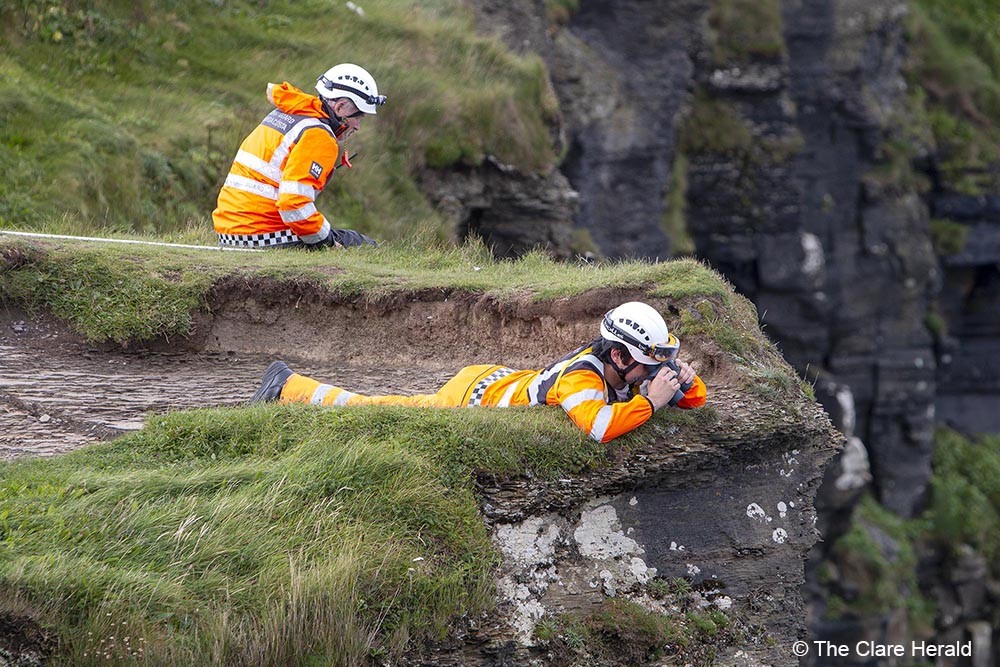
The majority of the remaining members of the Doolin unit of the Irish Coast Guard, which was stood down by the Department of Transport last week, have prepared a case for keeping the volunteer search and rescue team ‘on the board.’
The unit was stood down on November 1st after six members resigned including the team’s officer in charge (OIC). As a result, the remaining 12 volunteers are now prevented from responding to any emergencies or taking part in training after being ‘taken off the board.’
The members haven’t been formally told why they are no longer allowed respond to calls or conduct training when other stations around the country, with even fewer personnel, remain operational. Any specialised training courses and assessments have also been cancelled for Doolin team members.
On Tuesday, Junior Minister at the Department of Transport Hildegarde Naughton committed to appointing an independent mediator to try and resolve the issues at Doolin Coast Guard. This followed calls from a number of Clare Oireachtas members.
Previous attempts to sort the HR problems in Doolin have failed while the most recent effort, carried out by senior Coast Guard management, yielded no final report or action. Members have described it as a “waste of time and energy on everyone’s part because it’s management of the service that’s the problem.”
The majority of the remaining twelve volunteers have now outlined why they should be allowed to continue to provide a search and rescue service while issues at the station are being dealt with.
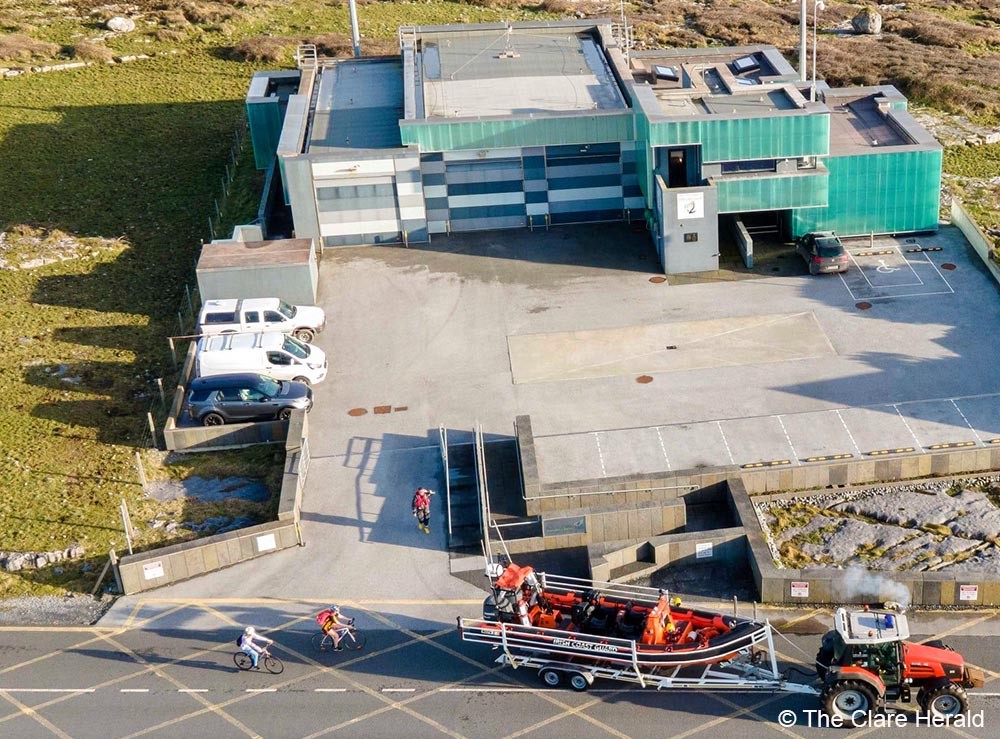
They say: “The volunteers of Doolin Coast Guard Unit are ready to continue to provide the service with 175 years of experience between them. The volunteers include 8 members qualified in cliff operations; 5 boat crew, and 1 drone operator with all members capable of being deployed for searches. Two more volunteers had appointments for individual assessment in climbing on November 7th and they would increase the number of volunteers qualified in cliff operations to 10 people.
However, following the standing down of Doolin Unit by HQ, this assessment was cancelled. By default, both of these volunteers would also retain their current qualifications as cliff rescue instructors, a vital necessity in the team re-building process, going forward.”
The members added: “’Off the Board’ status of the unit at present means that volunteers are not allowed to train, so skills and certification of skills will decline and subsequently expire. All volunteers hold a PHECC (Pre-Hospital Emergency Care Council) approved certificate in First Aid Response while one of the volunteers is a local GP and one is a qualified First Aid Responder.”
All volunteers are also trained in helicopter landing operations and can assist the helicopter crew with landing zone security, pre-landing risk assessment and site preparation with lighting and smoke signals at remote sites.
Members are also trained in assisting with “Hi-Line” winching operations where a landing is not possible, with members also assisting in the transfer of patients onto the aircraft as required. As this type of response is time critical and usually requires immediate deployment of the team, it would neither be feasible nor practical for any other “stakeholders” to deliver such a vital “safety” service.”
After the Doolin team was stood down, an Irish Coast Guard spokesperson said: “In the interim Coast Guard is liaising with other SAR stakeholders in the area in order to provide cover for services that otherwise would be provided by the Doolin unit.”
It has emerged that these stakeholders include the Kilkee Coast Guard unit; Kilrush RNLI in-shore lifeboat; the Aran Islands RNLI all-weather lifeboat; Clare County Fire and Rescue Service; Clare Civil Defence; Garda Water Unit; the Naval Service Diving Section and cave and mountain rescue organisations.
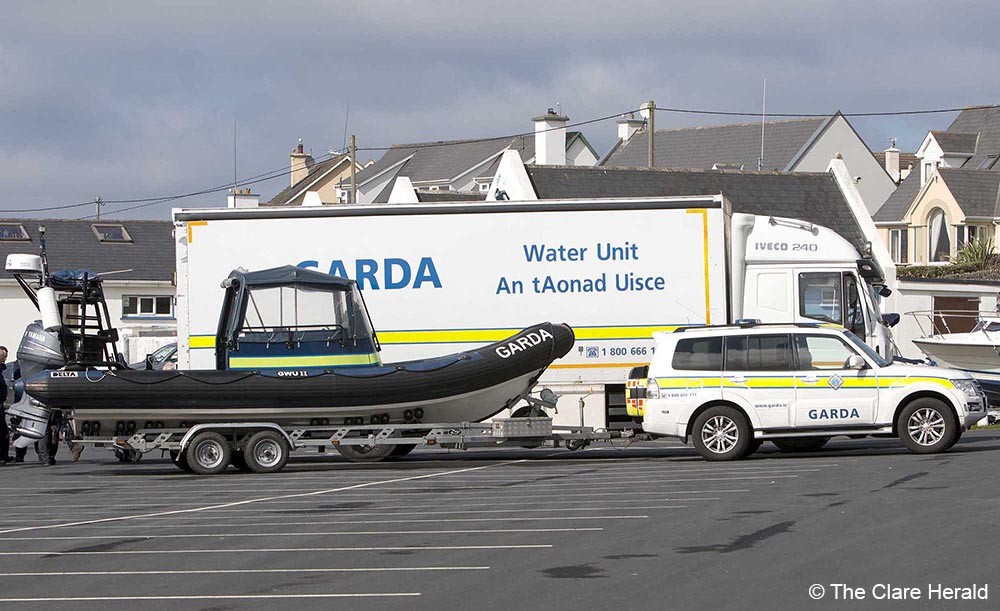
It has also emerged that a team of volunteers from the Ballybunion unit of the Coast Guard in Kerry will be made available to respond to calls in the Doolin area if required. The journey by road is over 150 kilometres and would take over two hours so it’s understood volunteers and their equipment will be flown by helicopter the Doolin if needed.
The Doolin volunteers also make the point that members “live locally and are ready to respond within minutes. Other stakeholders like Civil Defence (based in Ennis, 32 km away), Kilkee CGU (55 km away) can be tasked as support but immediate response should be initiated locally.”
The document continues: “At present the only all-weather boat available for rescue in the affected area is the Aran Island Lifeboat on Inis Mór. That boat now has to cover the area between Slyne Head and Loop Head.
Travel time from Inis Mór to Doolin for the Aran Islands lifeboat, in average sea conditions, is approximately 60 minutes from the time the member’s pagers sound. The distance to travel is about 22 km. A response time to any incident near the Doolin area will be extremely delayed. Average boat launch time for Doolin CGU is 15 to 20 minutes.”
“After the Doolin team was stood down, a spokesperson for the Irish Coast Guard said in a statement that the Inis Oírr (Aran Islands) Coast Guard Unit, which falls under the direct management of the Doolin Unit, “shall continue to remain fully operational.”
This however has no effect on operations at Doolin where volunteers say: “Inis Oírr team [+/- 6 members] has been portrayed as operational CGU in the area, however, they do not have a boat to travel to Doolin.”
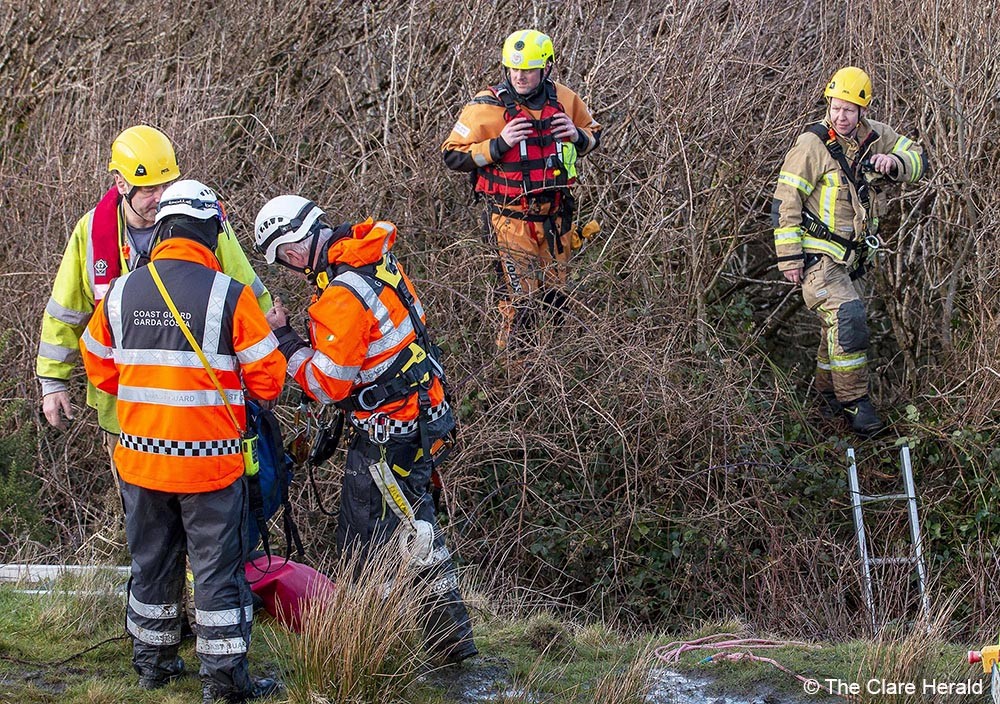
“Finally, any other teams/organisations tasked to operate in the Doolin area lack the unique local knowledge that is the preserve of the Doolin volunteers, ie. local landmarks, locally known place names and more importantly, factors influenced by sea and tidal conditions in the local area of operation, all of which comes from experience and knowledge that has been gleaned over many, many years of collective local activity. The other units/organisations would not have trained or operated in the area before, and so, would not have this unique experience,” the Doolin group has said.
